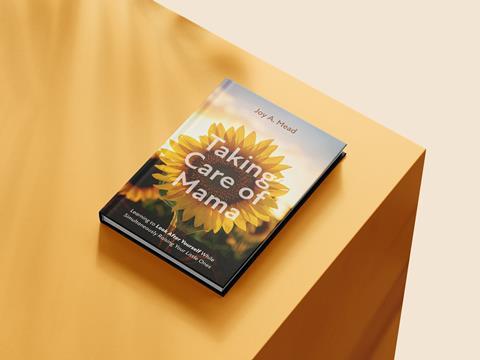Joy A Mead invites you to go on a journey to discover more about how past traumas may have affected you, so that you can be the healthiest version of yourself
Most mothers would agree that we would like to be emotionally healthy, however knowing how to get started on the emotional journey can feel overwhelming.
Starting my motherhood, I was emotionally unaware of myself, giving everything to everyone else yet neglecting my own needs. I also lacked boundaries – often saying “Yes” to volunteering when I should have said “No”.
Four years ago, my marriage needed help. My husband and I had been running ragged with raising young children and often missing each other completely. Marital counselling helped us towards healing, growing our marriage and becoming emotionally healthier.
Knowing your core emotions
Our therapist helped us understand the five core emotions of fear, shame or guilt, anger, sadness and Joy. Every person can feel these emotions to varying levels, and all other emotions branch off of these five. Below are some of the ways that I’ve found these emotions can affect us in motherhood.
Fear can often make us question: “Am I a good enough mother?” We fear failing our children. However, when we do get it wrong, we can recognise that failing is not our identity and persevere beyond our fear with the Holy Spirit’s help.
Shame or guilt can make us feel badly about ourselves. I shamed myself that breastfeeding my first baby didn’t work out, although I was able to breastfeed my second baby. God showed me that by bottle or breast my babies grew healthily, and I didn’t need to hold onto false guilt. If we feel shame or guilt because we have genuinely done something wrong, like yelling at the children, we can ask for forgiveness and do better next time.
Anger can surface within motherhood. Instead of ignoring it, a better approach would be asking God’s help through the process of learning how to let it out. Practically, we can do deep breathing, talk with a safe person, write a letter, foot stomp, punch a pillow, beat a stick on the ground or scream in the car when we are by ourselves. The Holy Spirit is fully capable to guide us in expressing anger – particularly in ways that don’t harm ourselves or those around us.
I was emotionally unaware of myself, giving everything to everyone else yet neglecting my own needs
We often mask our sadness as mothers. When asked how we are, the standard response is: “I’m fine.” We should be honest with ourselves, admitting struggles to safe people around us. Sometimes we feel sadness at missing ministries that we did before having kids. Be encouraged that being a mother is a ministry to the next generation! God will continue to place wonderful ideas on your heart and reveal how to best implement them.
Joy can be difficult to feel, but we have a choice in motherhood to let joy in, and we do this by pushing into gratitude. I like starting my day with a prayer: “Thank you God for…” By acknowledging God’s many blessings I can start my day positively, which allows me to experience joy.
Being aware of our core emotions and giving ourselves permission to feel them are the first steps in understanding ourselves emotionally. Like any other area of your life needing improvement, invite God to start this emotional health journey with you.
Inner child and facing past traumas
When you are ready to go emotionally deeper, doing ‘inner child’ work will greatly help in understanding your emotional history. Inner child work is about opening yourself up to remembering, acknowledging and validating how you felt when your needs were not met in specific childhood phases.
Personally, I had to come to terms with feelings of neglect and loneliness that my parents devotedly served at church so much that sometimes our family life felt diminished. Serving God and being part of a church community are honourable, yet even good things can have negative consequences if we don’t set boundaries on the amount of time given. As mothers, we need to reserve some energy and replenish ourselves in order to serve our families well.
A wounding from my childhood was being the outsider and struggling to make friends when I had to switch schools. Another was travelling by car to and from the disliked school with a difficult classmate who repeatedly said put-downs and negative comments to me. With these examples and others, I never expressed to my parents how I truly felt, which led me to bottle up my emotions.
As mothers, we can be triggered by our children and instantly taken back to our woundings. For instance, if my children are ignoring me, I can be triggered back to childhood and feel as sense of the neglect and loneliness at the struggles I was facing back then. If you recognise patterns of emotional triggers, it is worth exploring your woundings so that you can address the emotions from past trauma and not take it out on your children.
As mothers, we need to reserve some energy and replenish ourselves in order to serve our families well
Be gentle and honest with yourself, taking the time that is needed for your emotional health journey. Invite God to help you face past traumas. Acknowledge that you mattered throughout childhood, and you still matter. Validate your inner child’s feelings and ask God to heal your woundings, so you can demonstrate better emotional health to your children.

Love languages and how are you…really?
As a wedding present, we were gifted Gary Chapman’s book The Five Love Languages (Northfield Publishing), which sat on the shelf collecting dust until a decade later in marital counselling when our therapist asked if we had read this wonderful book! The five love languages are: words of affirmation, quality time, receiving gifts, acts of service and physical touch. Each person feels love through all five love languages, but we will primarily gravitate towards one or two love languages.
I feel loved when receiving acts of service or spending quality time with my husband, while he feels loved by words of affirmation and physical touch. Understanding these love languages can teach us how to meet each family member’s need to be loved and is also something we can discuss with our children, who will have their own primary love languages.
To be aware of ourselves, we need to push past the tendency to answer, “How are you?” with an, “I’m fine,” response. From a commonly used psychotherapy exercise, we can ask the following PIES and G for Gravy questions of ourselves, our spouse, a close friend, or in therapy:
PIES and G (for Gravy) help us to immediately think deeper than the surface level.
P stands for Physically, how am I feeling?
I is for Intellectually, how am I feeling?
E stands for Emotionally, where am I?
S is for Spiritually, where am I?
G is for Gratitude, for what am I grateful?
If we regularly answer these questions we will better understand our emotions, which will provide us with the ability to adjust our behaviours and bring about a healthier version of ourselves.
It is crucial for the family’s health that each mother knows what she is feeling and why. Through praying, reading the Bible and practical work, we have a responsibility to be emotionally resolved to ensure we do not pass on emotional trauma to our children.
Remember that your emotions, feelings and your journey with them do not have to look like anyone else’s. God loves and accepts you at every stage of your emotional journey towards being the healthiest mother you can be!































No comments yet